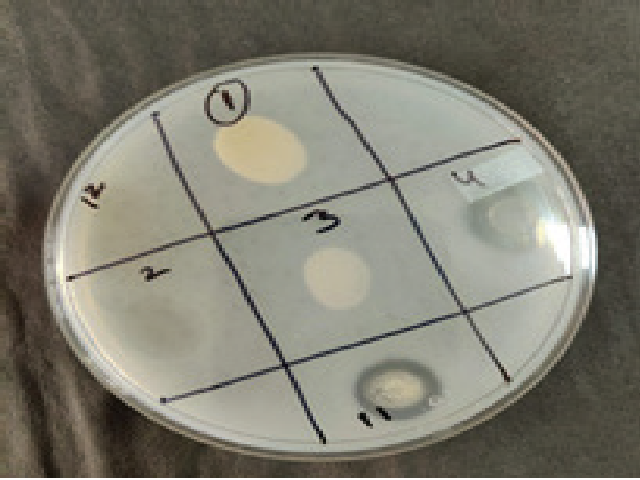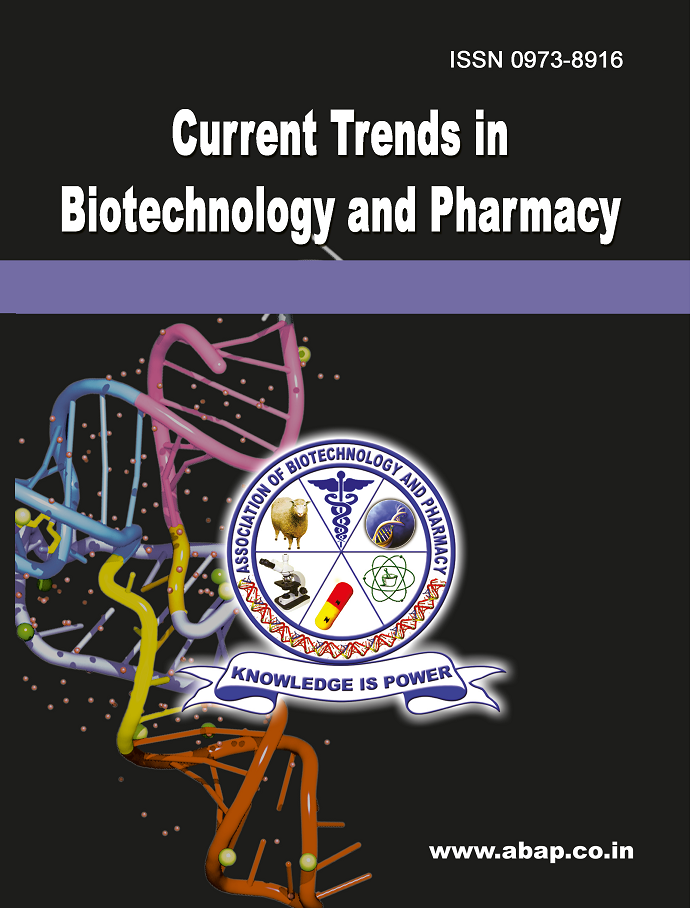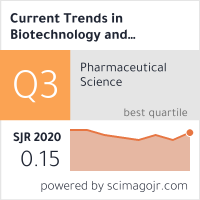Identification of Phytate Degrading Probiotic Bacillus Sp. – potent Source of Phytase for Phosphate Bioavailability
DOI:
https://doi.org/10.5530/ctbp.2023.4.80Keywords:
Bacillus, β-Propeller phytase, Phytate, Probiotics, 16s rRNA, Phytase Screening Medium (PSM)Abstract
Phytate, an anti-nutrient, limits the bio- availability of phosphorus and other minerals in feedstocks of monogastric animals. An extrinsic phytase, a phosphatase enzyme, is supple- mented in their diets to increase the absorption of minerals like calcium, iron, and zinc found in many grains and oil seeds. A viable source for the screening and isolation of bacterial phytase producers was found in the current investiga- tion to be bacteria-rich food-grade probiotics. Although fungi and yeast based phytases are popular, bacterial phytases have emerged as potential source of phytase with their biochemi- cal properties. Probiotic with variety of formula- tions containing spores of bacillus species was used as potential source for phytase secreting bacillus and its identification. Upon screening of these strains, PS4 strain showed 6.2mm clear hydrolytic zone on 1.5 % PSM agar plate. Bio- chemical assays and 16s rRNA sequencing identified the phytase producing strain to be Ba- cillus sp BAB 3372. The phytase enzyme activi- ty assay showed 1.15 U/ml. Genomic DNA from the phytase producing isolates was 19.773 ng/ µl and its purity assessed by measuring the ab- sorbance ratio of 260/280 was found to be 1.8. 16srRNA sequencing identified the isolate as bacillus BAB 3372 Accession No. KF952780.1. This preliminary screening has helped in the identification of bacterial β-Propeller phytases that can be used as feed supplement in live- stock and also for reduction of Eutrophication in the areas livestock production.



